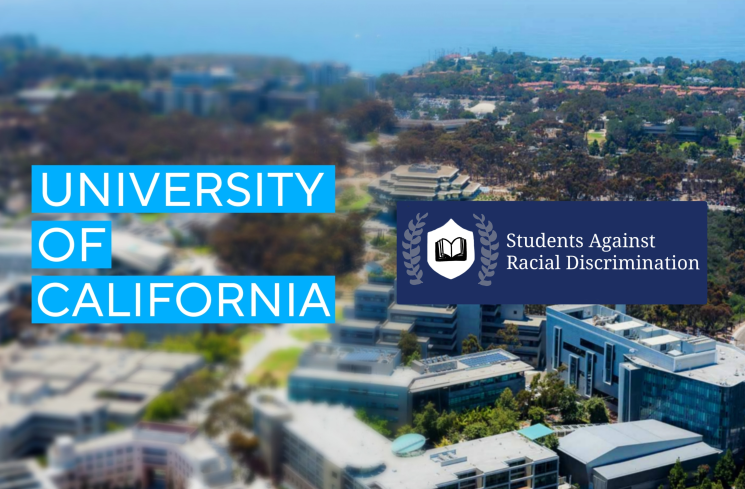
By Vaughn Bui & Travis Wu
The University of California (UC) system is facing a lawsuit alleging racial discrimination in its admissions process. The case has reignited debates over fairness, merit and the role of race in higher education.
Filed in the United States District Court for the Central District of California on Feb. 2, Students Against Racial Discrimination (SARD)—a group founded by students who attended the University of California, Los Angeles (UCLA)—have filed a court complaint accusing the University of California (UC) of using race as an admissions factor to favor non-Asian undergraduate applicant admissions. The complaint accuses the UC system of going against California’s Proposition 209, a law passed in 1996 that outlawed affirmative action in California public universities, and the Supreme Court’s decision to effectively outlaw affirmative action in 2023.
UCLA Professor Richard Sander, co-founder of SARD, suggested that such policies harm underrepresented students more than they help. Sander alleges the UC system admits students with weaker academic records over more qualified applicants based on race to promote racial diversity.
“[The universities] reintroduced illegal racial preferences during the late 2000s and 2010s to virtue-signal rather than to achieve legitimate educational goals,” Sander said.
He references the Mismatch Theory introduced in his book, Mismatch, which claims that admitting students with lower academic qualifications to elite universities puts them at a significant disadvantage compared to their peers; these students are not yet prepared to tackle the difficulty of UC courses.
“Hispanic and Black students are often placed at a significant academic disadvantage and experience worse outcomes because of the university’s use of racial preferences,” Sanders said.
The rapid growth of Hispanic and Black undergraduate admissions contrasts the normally Asian-dominant student population in recent years, which led to suspicion about a possible race factor in admissions. The suit was founded on growing concern that Asian applicants have a growing unfair disadvantage in admissions as the University favors other ethnic groups.
The claims reference statistical data. Looking at UC Berkeley’s 2010 admissions data shows a 7% difference between the acceptance rate of in-state Black students (14%) and the overall in-state admission rate (21%). By 2023, this gap had decreased to 2%. Such trends suggested the possible presence of racial considerations in the admissions process despite the ban on affirmative action.
Additionally, UCLA recently published statistical data showing a 5% increase in Hispanic and Black students in 2024 as compared to 2023, further contributing to the rapid growth. The university has also proudly described the 2024-2025 admitted undergraduate class as being one of the most racially diverse in recent history.
UC has denied the allegations, calling them meritless. Street Holbrook, a UC spokesperson, spoke on behalf of the board regarding the lawsuit.
“We believe this to be a meritless suit that seeks to distract us from our mission to provide California students with a world-class education,” Holbrook said.
The UC had publicly announced in 2021 their mission of promoting racial diversity and giving access to education to previously underrepresented ethnic groups. Among their goals, they describe raising the percentages of historically overlooked groups, specifically highlighting the extremely low enrollment rates of African American undergraduates.
Other speakers argue that data contradicts the claim that Asian Americans are at a disadvantage from access to higher education. March 2024 statistics show that Asian Americans currently make up the largest share of UC undergraduates at 37% of all students enrolled. In comparison, Hispanic undergraduates make up 26%, and African American undergraduates make up only 5%.
Executive Director of Undergraduate Admissions Han Mi Yoon-Wu gave his own reasoning behind the alleged “suspicious” rise in non-Asian applicants.
“The students behind these numbers come from all corners of California and are proof that there are many paths to a UC education,” Yoon-Wu said.





